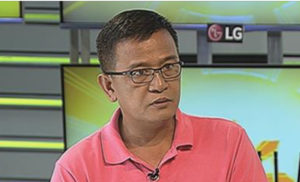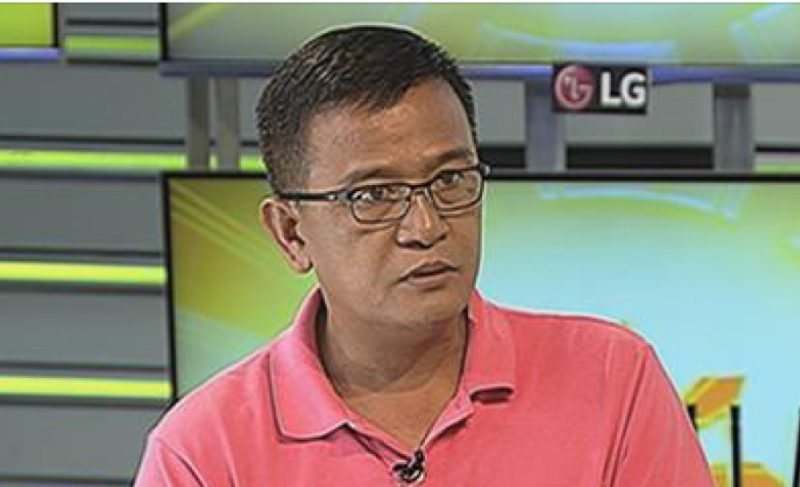
Incoming Philippine Customs Commissioner Nicanor Faeldon has identified four of his top priorities once he assumes office at the Bureau of Customs (BOC), described by President-elect Rodrigo Duterte as one of the most corrupt in the bureaucracy.
In an ABS-CBN TV interview on June 1, former Marine Captain Faeldon said he will fast track computerization of the agency; re-impose the pre-shipment inspection (PSI) policy, with shippers paying for the service; push for government-to-government cooperation that will establish online import price monitoring designed to ensure BOC personnel are aware of tariff rates at all times; and repeal the Customs Brokers Act of 2004.
The fourth priority is particularly controversial because Faeldon said he wants the services of customs brokers to be optional. Under the Customs Brokers Act of 2004, the services of customs brokers are required in the lodgement of import entries. Any change in this Act has met with vehement objection from customs brokers who fear the death of their profession.
It must be noted though that Faeldon’s proposal is hardly unique. In the Customs Modernization and Tariff Act (CMTA) signed by President Benigno Aquino III on May 30, the engagement of customs brokers will, in fact, become optional after two years of the law’s implementation. It is not clear whether Faeldon will honor the two-year provision under the CMTA or move to declare customs brokers’ services optional even earlier.
Customs brokers as ‘cheats’
In the same TV interview, Faeldon made a sweeping claim against brokers, calling them “manloloko” (cheats) who are “conduits to smugglers. Kasi pag nakakahuli tayo ng malalaki walang may-ari, nakasulat lang consignee sa isang hao shiao na broker (Whenever we apprehend big shipments, there are no owners, as these are just consigned to hao shiao brokers),” he said. Hao shiao is a term used to describe fake personnel at the BOC or in the industry.
“Why do we need brokers? Nung sinauna, panahon ng Stone Age siguro yung taga-Batanes kagaya ko hindi namin kaya gumawa ng transaction… typewriter pa lang, usok pa lang nung naisip itong brokerage concept (In the old days, in the Stone Age maybe, someone like me who’s from Batanes couldn’t do transaction… it was still just the typewriter, the smoke signal when the brokerage concept was developed). In other developed countries, hindi na siya mandatory (engagement of customs broker is no longer mandatory), it’s optional. Here in our country it’s mandatory,” he said.
Faeldon said he will reorganize BOC as much as the law will allow, and will reduce the number of signatories.
The incoming BOC chief also said he will prioritize and fast-track computerization of the customs agency, which he said “some people with vested interest” had been trying to stop. There is currently a temporary restraining order preventing the agency from replacing the current system or procuring another one. It must be noted that automation of customs processes is now mandated under the CMTA.
PSI revival
Faeldon also plans to implement the PSI for containerized shipments which, he said, is where “bigger corruption in Customs” happens. PSI is already in effect but only for bulk and breakbulk shipments.
He noted that PSI had been implemented before, but was removed for being too costly for the government to undertake. In such a case, the former marine captain said shippers may be made to pay for the procedure should it be implemented again.
From 1986 to 2000, Swiss firm Societe Generale de Surveillance was contracted by the government to implement the PSI. The service was terminated in 2002 when some politicians lobbied for its termination, claiming the program was costly as it covered all importations.
Shouldering the extra cost of the PSI was one of the major reasons port stakeholders and the private sector in 2014 opposed the plan to expand PSI to container shipments. The plan was eventually set aside due to the more pressing Manila port congestion and was opposed by Customs Commissioner Alberto Lina when he assumed office.
Faeldon said he wants to implement PSI so that BOC knows the exact quantity and quality of incoming shipments even before they arrive in the country. The government should also be able to ensure that the value declared by the shipper is the correct one. Thus, Faeldon suggested that the government “establish an online monitoring of all prices of commodities” from countries the Philippines imports. This, the incoming BOC chief said, needs utilization of technology and the cooperation of other governments, noting this “is easy to do.”
Repaying the padrino
Asked if he can stop irregularities at the BOC in six months, which he acknowledged as the marching order to him by Duterte, he said yes.
But then later, he said he “can’t promise anything” when it comes to rice smuggling.
Faeldon said that to really eliminate corruption in the bureau, the “padrino (godfather) system,” which he said was being used to repay political debt, should be stopped. He said deputy commissioners and collectors’ loyalties usually lie with their padrinos, and that BOC will always fail if this system is not corrected.
As for those who are already in the bureau because of padrinos, Faeldon said “what we can do is to check on their activities,” and if the rules allow, to take them out of the agency.
He likewise said he will decline facilitation requests from anyone, even from friends or allies of Duterte.
“Ngayon pa lang sinasabi ko na sa inyo magkakahiyaan tayo (This early I’m telling you we’re going to get into conflict), I’ll say no to you. So huwag niyo nang subukan (So don’t even try),” Faeldon stated. He added that “you do not need to go there and ask me to facilitate your trade because that is the mandate of the bureau.”
“I will make sure that all your trades, if they are legal, will be processed the fastest that we can,” the incoming BOC chief said.
On his appointment
Faeldon said his appointment has nothing to do with him attacking defeated vice presidential candidate Senator Antonio Trillanes IV, a known critic of President-elect Rodrigo Duterte. Interestingly, Trillanes and Faeldon were part of the Oakwood mutiny in 2003 when they criticized abuses and politicization in the military during the time of former President Gloria Macapagal-Arroyo. In 2005, Faeldon escaped from custody after attending a hearing on the coup d’état case filed against him and 29 other accused. He was recaptured in 2006.
Faeldon later accused Trillanes of receiving money from then solon and current Ilocos Norte Governor Imee Marcos who visited while they were in detention at the Intelligence Service of the Armed Forces of the Philippines.
Asked by a TV viewer why he is qualified to be BOC commissioner, Faeldon said, “I do not know. But what I can say is I can say no to anybody. The problem with Customs is not just the management, it’s the corruption.”
He said the management of the BOC “does not require a genius person” because “there are the career people to do the nitty-gritty.”
“But when you understand… trade facilitation and revenue collection, hindi kailangan genius para magawa mo siya (you don’t need a genius to get the work done). It’s simple common sense. It’s the leadership and the determination to stop corruption. I will provide that with customs.”
Who is Nic Faeldon?
Faeldon was born in Batanes province on July 29, 1965 and graduated with a degree in political science at the National University in Manila. He started his military career in June 1989 as a 3rd Class Trainee of the Naval Combat Engineering Brigade (formerly Naval Construction Brigade), and was called into active duty by the Philippine Marine Corps in 1992. Faeldon co-owns a security agency and is the founder of Kalayaan Atin Ito, a youth-led group whose activities included going to the Spratlys to assert Philippine sovereign rights over its waters at the West Philippine Sea.
Faeldon will replace Alberto Lina who was reappointed to the BOC in 2015. Before 2015, Lina was Customs commissioner from February to July 2005.
In a phone interview, Lina told PortCalls the BOC has already submitted its transition papers to its mother agency, the Department of Finance.
Work ahead of Faeldon
Among Lina’s suggested priorities for the incoming BOC chief is the automation of BOC and implementation of the CMTA recently signed into law by President Benigno Aquino II. Lina said they are already drafting the IRR of the law and targets finishing it before the current administration steps down.
Earlier, Management Information System and Technology Group deputy commissioner Dr. Dennis Vladimir Reyes said he is crafting a technology roadmap on handling the requirements of CMTA, which he can hand to his successor for reference.
Aside from implementing the CMTA, Faeldon will also have to oversee the crafting of an IRR for Customs Administrative Order No. 01-2016, or the Advance Submission of Sea Manifest; decide on the switch-on mode of submission of air manifest; draft the IRR for RA 10845 or the Anti-Agricultural Smuggling Act; implement RA 10668 or the Foreign Ships Co-Loading Act; and implement the ASEAN Single Window, which the country signified to join this year.
BOC is also hosting the World Customs Organization’s Partnership in Customs Academic Research and Development Conference that will be held in Manila on September 27-29, an annual dialogue between Customs administrations, universities, and research institutes on topics relevant to Customs and international trade.– Roumina Pablo





